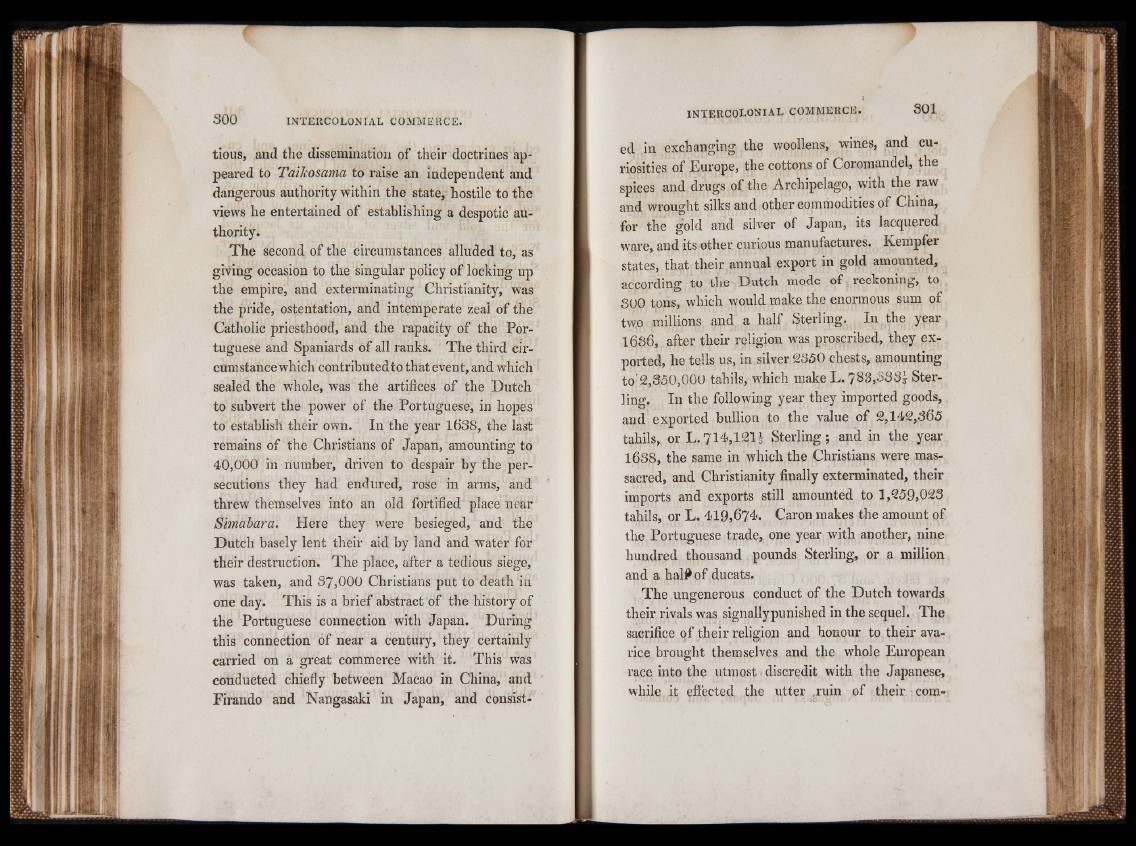
tious, and the dissemination of their doctrines appeared
to Taikosama to raise an independent and
dangerous authority within the state, hostile to the
views he entertained of establishing a despotic authority.
The second of the circumstances alluded to, as
giving occasion to the singular policy of locking up
the empire, and exterminating Christianity, was
the pride, ostentation, and intemperate zeal of the
Catholic priesthood, and the rapacity of the Portuguese
and Spaniards of all ranks. The third circumstance
which contributedto that event, and which
sealed the whole, was the artifices of the Dutch
to subvert the power of the Portuguese, in hopes
to establish their own. In the year 1638, the last
remains of the Christians of Japan, amounting to
40,000 in number, driven to despair by the persecutions
they had endured, rose in arms, and
threw themselves into an old fortified place near
Simabara. Here they were besieged, and the
Dutch basely lent their aid by land and water for
their destruction. The place, after a tedious siege,
was taken, and 37,000 Christians put to death in
one day. This is a brief abstract of the history of
the Portuguese connection with Japan. During
this connection of near a century, they certainly
carried on a great commerce with it. This was
conducted chiefly between Macao in China, and
Firando and Nangasaki in Japan, and consist-
INTERCOLONIAL COMMERCE . SOI
ed in exchanging the woollens, wines, and curiosities
of Europe, the cottons of Coromandel, the
spices and drugs of the Archipelago, with the raw
and wrought silks and other commodities of China,
for the gold and silver of Japan, its lacquered
ware, and its other curious manufactures. Kempfer
states, that their annual export in gold amounted,
according to the Dutch mode of. reckoning, to
300 tons, which w o u ld make the enormous sum of
two millions and a half Sterling. In the year
1636, after their religion was proscribed, they exported,
he tells us, in silver 2350 chests, amounting
to'2,850,000 tahils, which make L. 783,333^ Sterling.
In the following year they imported goods,
and exported bullion to the value of 2,142,365
tahils, or L .714,1211 Sterling; and in the year
1638, the same in which the Christians were massacred,
and Christianity finally exterminated, their
imports and exports still amounted to 1,259,023
tahils, or L. 419,674. Caron makes the amount of
the Portuguese trade, one year with another, nine
hundred thousand pounds Sterling, or a million
and a half* of ducats.
The ungenerous conduct of the Dutch towards
their rivals was signallypunished in the sequel. The
sacrifice of their religion and honour to their avarice
brought themselves and the whole European
race into the utmost discredit with the Japanese,
while it effected the utter ,ruin of their com